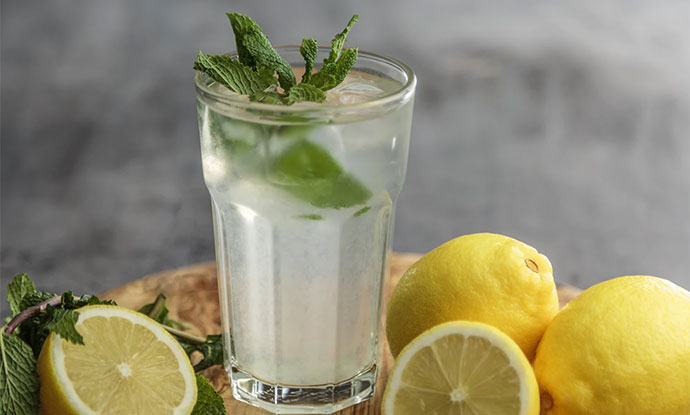Dehydration often shows up as an issue in Kinesiology sessions, and it can totally affect your mood and cognitive function!
Here in Australia we’re currently in deep Winter… and this is a little PSA (public service announcement) about avoiding dehydration in the c-c-c-cold Winter months.
Yes you can become dehydrated in Winter just as easily as you can in Summer
Did you know that in cold weather, the body’s thirst response is diminished by up to 40 percent?
Which means that even if you don’t feel thirsty, you still might need more water than you’re drinking!
This happens because when we’re cold, our blood vessels constrict to prevent blood from flowing freely to the extremities (which is another reason your hands and feet get cold more easily in winter).
This allows the body to conserve heat by drawing more blood to its core.
Related: You, your immune system and winter
Have you ever noticed you need to pee more when it’s cold?
Again, due to the body attempting to conserve heat, those constricted blood vessels cause your blood pressure to rise (since there’s less space for the blood to flow through).
To regulate your blood pressure, your kidneys then filter out excess fluid from your blood to reduce its volume. And that excess fluid has to go somewhere!
A full bladder is another way that your body loses heat, so urinating when you need to helps preserve core body temperature.
What other factors lead to Winter dehydration?
- Extra layers of clothes. Wearing heavy jackets, long underwear and other pieces of warm clothing help your body conserve heat. But the added weight of extra clothes makes the body work between 10 and 40 percent harder. By working harder, the body produces more sweat, contributing to fluid loss.
- Increased respiratory fluid loss. You know how you can see your breath in cold air? That’s in part due to water vapor loss via the lungs. In cold weather, we lose more fluids through respiratory water loss.
- Sweat evaporates more quickly in cold air. We often think we aren’t sweating in cold, dry weather, because it tends to evaporate so quickly. This is another factor that can contribute to a diminished thirst response.
- Less water, more tea/coffee/alcohol. The idea of drinking water in Winter might feel counterintuitive. We want warm drinks, am I right? BUT tea and coffee aren’t the same as drinking plain water, in terms of keeping you hydrated.
Also? Caffeine is actually a diruretic, which means it causes fluid loss.
How do you know if you’re dehydrated in Winter?
There can be a range of symptoms including:
- Dry mouth or skin
- Tiredness
- Increased or decreased urine output (with a much darker color than usual)
- Headaches
- Constipation
- Dizziness
- Severe dehydration may result in little to no urination, extreme thirst, sunken eyes, shriveled/dry skin, low blood pressure, rapid heartbeat, rapid breathing, fever and delerium
What can you do to stay hydrated in the colder months?
- Drink a large glass of warm water first thing in the morning when you wake up. You can add either a slice of lemon or a pinch of Celtic sea salt to your glass as a hydration catalyst. I also tend to do this at night, too.
- Rotate your fluids during the day. My first rule is to rehydrate after sleeping all night. So water before anything else. But then I’ll also enjoy coffee, green or herbal tea, or tumeric lattes. Another option is simply warm water – I blend room temperature water with boiled water so it’s just right!
- Drink coconut water – add it to your smoothies, or drink it as a room temperature alternative to water.
- Make soups with bone broth and water – you get to slurp your nutrients (lots of veggies) and add to your hydration at the same time.
- Wear your clothing in layers that can be added/removed to regulate your body temperature.
- Get fresh air – too much time spent indoors with artificial heating is very dehydrating, too.
I hope this helps as a reminder to keep drinking plenty of water in Winter!
Much love,


